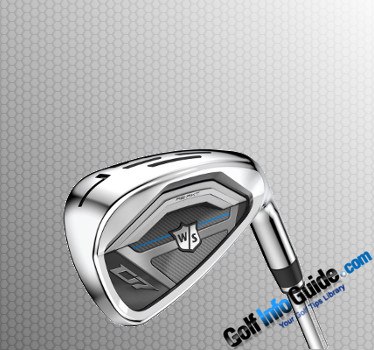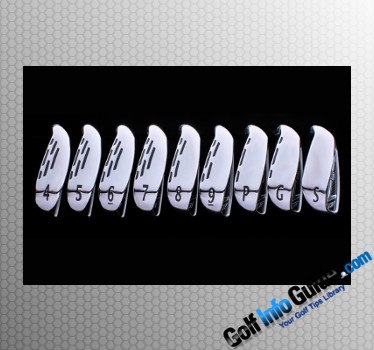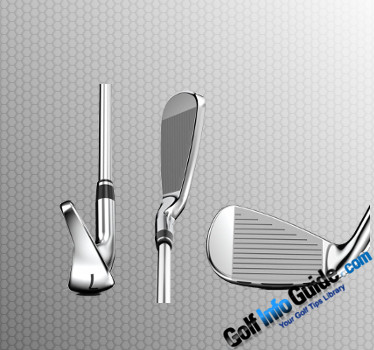
The new Wilson Staff D7 irons are finally here, and the best thing is that they’re going to be available for purchase starting with mid-January 2019 . There are two versions to choose from: $599.99 with KBS Tour 80 steel shafts and Lamkin Crossline Black grips, or, the more expensive $699.99 with UST Mamiya Recoil graphite shafts. Regardless of what you’re going to get, the new Staff D7 from Wilson are marketed as maximum game improvement irons, designed to deliver amazing forgiveness and increased distance to average golfers from all around the world.
And that’s pretty obvious for the brand aficionados, the “max-game-improvement” thing, because in the company’s parlance, the D particle stands for “distance oriented” gear, hence the new D7 irons were clearly designed to appease golf players looking for increased forgiveness, especially on off-center hits, and more ball speed. With their latest D7 irons, Wilson has taken its patented Power Hole technology to new heights. The new 4-7 irons which are now available in the set are replacing the old generation D300, and they feature 3 rows of Power Holes on the sole. The purpose of the Power Hole technology is to bring more distance via increasing face deflection. Furthermore, the 8-9 iron in the D7 line-up only has 2 rows of Power Holes. On the other hand, the PW and GW irons only have one row, to improve precision.
The new 4-7 irons which are now available in the set are replacing the old generation D300, and they feature 3 rows of Power Holes on the sole. The purpose of the Power Hole technology is to bring more distance via increasing face deflection. Furthermore, the 8-9 iron in the D7 line-up only has 2 rows of Power Holes. On the other hand, the PW and GW irons only have one row, to improve precision.
The Power Hole technology uses a urethane filling, just like we’ve already seen in the C300/C300 Forged irons. The urethane material used to fill the holes works by dampening vibrations upon ball impact, hence it works wonders in regard to improving both sound and feel. In order to create a more traditional set of irons aesthetics wise, Wilson Golf decided to remove the Power Holes from both the topline and the toe. The Power Hole technology works in tandem with Wilson’s thinnest face to date, which also increases ball speeds, via improved deflection, as the face functions in a trampoline-like motion upon ball impact. There’s also a wider sole in the new D7 irons, which allowed Wilson to move the weight lower and deeper in the clubhead, and more towards the heel/toe. This engineering gimmick translates into improved resistance to twisting and an increased moment of inertia, by ten percent on average.

These two technologies put together are marketed by Wilson as RE-AKT, and they’re aimed at delivering more ball speed for increased distance for both off center and center impacts. According to the Global Innovation Manager at Wilson Golf Jon Pergande:
“We have taken Power Hole Technology to the next level by increasing the ball speed where it’s needed most on longer irons, then controlled the energy that’s returned to the ball on shorter irons where precision and feel is required”
The hosel in the D7 irons has been modified too, in order to provide easier adjustability to the club. Bottom line, I can’t wait to take these babies for a swing on the golf course. How about you?




